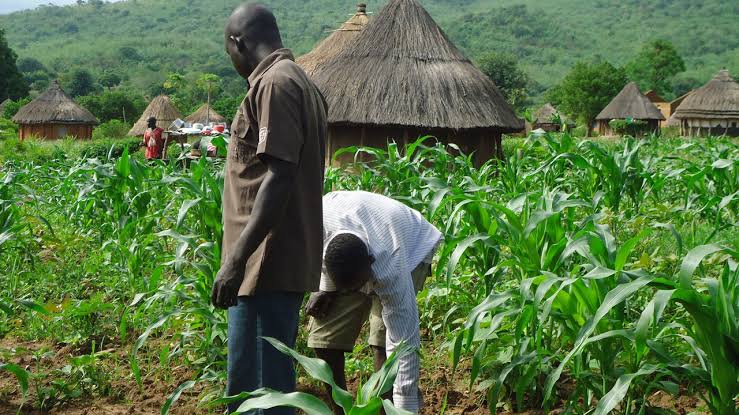Stakeholders in Agriculture have called for the development of agriculture master plan in Kwara to boost food security in the state.
SEE ALSO: Ex-inmate Seeks Reintegration Assistance for People Released from Correctional Centres
They said the masterplan would outline various policies toward promoting food sufficiency in the country.
The stakeholders made the called in a statement issued on Tuesday in Ilorin under the umbrella of the Public Financing of Agriculture (PFA) Project in Kwara.
The statement was jointly signed by the PFA Coordinator in the state, Mr Abdurrahman Ayuba, and the state coordinator of the SWOFON, Hajia Bosede Anifowose.
PFA project is funded by Actionaid Nigeria in the state and seven others, including the Federal Capital Territory (FCT), to increase quantity and improve quality of public investment in agriculture through enhanced citizens’ participation in policy-making process.
The News Agency of Nigeria (NAN) reports that the project was being implemented by stakeholders in Civil Society Organisations and the state chapter of the Small Scale Women Farmers Organisations in Nigeria (SWOFON).
The stakeholders stressed the need for urgent prioritisation of agriculture in the face of COVID-19 pandemic and its effect on the means of livelihood of citizens and the economy of the state.
They also canvassed for formulation and adoption of agroecology as a state policy on agriculture.
Agroecology, it said, is a system of sustainable agriculture practice that draws on social, biological and traditional methods with focus on integrated pest and nutrient management, conservation, agro forestry, aquaculture and livestock integration.
The group also said that agroecology thrived on organic farming, thus cheap to practise, environment friendly and healthier.
They added that agroecology would also guarantee increased income for farmers and forex as it attracted better international patronages due to organic nature of produce.
“The government should raise agriculture budgetary allocation to minimum of 10 per cent of the total budget in fulfillment of the Comprehensive Africa Agriculture Development Programme (CAADP) Maputo Declaration.
“Agricultural extension agents should be exempted from the movement restrictions, so they can provide extension services support to farmers while maintaining physical distancing and other precautionary measures.
“Special palliatives targeted at smallholder farmers especially women should be designed to provide for the needs of farmers as they are amongst the poor and vulnerable.
“Urgently, farmers should be provided with agricultural insurance services as the outcomes of a recent research by the Actionaid Nigeria indicates that the impact of Government Agricultural Insurance (GAI) provision over the years to farmers especially women has been very poor in Nigeria.
“Grants, credit, essential inputs, early maturing livestock, improved seeds and seedlings, and fertilisers preferably organic, should be provided for smallholder farmers especially women to avert the looming food crisis.
“Provision of face masks, hand gloves, sanitisers and access to water for farmers across the state should be prioritised and included in the response on COVID-19.
“Farmers across the state should be targeted specifically and sensitised on COVID-19 and in addition, government as a matter of urgency, device a way to protect farmers especially women farmers from incessant encroachment of their farms,” the statement read in part.
The stakeholders also sought revamping of extension services in the state through formulation of an extension policy with particular focus on massive recruitment, training and retraining of extension workers, funding of extension programmes to deliver quality services to rural farmers.
They also called for massive opening up of rural roads through programmes like the Rural Access and Agricultural Marketing Project (RAAMP) and direct construction by the state government to evacuate agricultural produce from farm gate to markets.
The group further called for citing of farm settlements and agriculture villages in all the 16 local government areas of the state where organic and integrated farming would be popularised.
Besides, it called on the state government to ensure regular consultations with and involvement of farmer groups and civil society organisations in policy formulation.
NAN reports that membership of the coalition included the Centre for Community Empowerment and Poverty Eradication (CCEPE), Meadows Community and Development Outreach (MCDO), Fulfilling Dreams Foundation (FDF) and Organisation for the Sustainance of the Nigerian Environment (OSNE).
Other members are Welfare for Children and Teenagers lnitiative, FEMCOM, Community Need Care Development Initiative (CONCED) and SWOFON.




 Premier League
Premier League